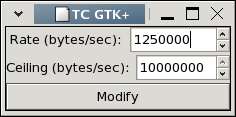On February 1, 2005 the Federal Government of Canada introduced legislation into the house of commons that would make gay marriage legal across the country. Courts in most provinces have already ruled that stopping gay marriages is unconstitutional so it should not be surprising that the federal government has taken this measure. Not only is it the right thing to do, any attempt to make gay marriage illegal would almost certainly be struck down by the supreme court based on the Charter of Rights and Freedoms anyway. Nothing but the lining of lawyers pockets and the wasting of tax payers money would be served by such an attempt.
None of this has stopped the usual bantering and idiotic arguments put forward by the “anti-gay marriage” people.
First of all, I think I am pretty unbiased on this issue. I’m not gay; I don’t know any gay people. No matter how this ends it will not change my day-to-day life one bit. What bothers me about this issue is the abuse of the principles involved and the complete lack of logic.
Most of the quotes below come from a CBC story called Cotler unveils ‘landmark’ same-sex law.
“If you’re going to throw open the definition of marriage so you destroy it in essence, how do you know you can ever draw the line any place? If I want two or three wives and want that considered legal marriage, who are you to tell me I can’t do that?” – Ontario MP Pat O’Brien, May 10, 2003.
This is nothing but fear mongering. Society can, and does, set limits all the time. Did lowering the drinking age from twenty-one to nineteen “throw open” the possibility of further lowering the drinking age to sixteen? Of course not.
“The Conservative party will fight to give a greater voice to Parliament. We will ensure that issues like marriage are decided by Parliament, not the courts.” – Party website.
Great plan. Lets have societies dominant elements decide for everyone else what is OK and what is not. That is a sure way to make sure everyone is treated fairly. Wake up! The Charter was created for exactly this reason. The elected representatives who, in a large part, represent the dominant groups of society cannot be trusted to enact legislation that protects minorities.
. . . no religious officials will be forced to perform marriages that are contrary to their beliefs.
– Justice Minister Irwin Cotler
Vic Toews, the Conservative party’s justice critic, disputed the Liberals‘ insistence that the law protects religious officials from having to perform gay-marriage ceremonies.
He also said there’s no protection for individual Canadians who don’t hold a church office but want the right to refuse to have anything to do with gay marriage.
. . .
Toews cited several examples of people and groups whom the bill wouldn’t protect:
- Civil marriage commissioners in Saskatchewan and Manitoba, who have been told they must perform same-sex ceremonies or lose their jobs.
- . . .
How is this any different than if a civil marriage commissioner refused to marry an inter-racial couple because of his or her beliefs? The answer? It’s not. The idea that an agent of the state should have discretionary privileges is absurd. Why even have laws if the people implementing them have the option to ignore the laws they do not agree with?
That’s why his party [Conservatives] will try to amend the bill, limiting marriage to one man and one woman while offering homosexual couples full rights under some other type of civil union.
Notice the word “full”. At least in this case they have not used the word equal. I always find people who say things like “We believe in equal rights . . . gays can have civil unions with the same privileges as marriage just not marriage proper” hilarious. You either believe in equal rights or you do not. Adding a qualification to any statement about equal rights means that you do not believe in equal rights, period.
“What we are seeing is a consistent pattern,” he said. “Whenever equality rights and religious rights collide, equality rights trump.” — Vic Toews
Again, I am dumbfounded by this person. Of course equality rights trump religion. Think about how absurd it would be if it were the other way around. Which religions views would would society take as ‘right’? What about religions whose views directly contradict each other?
The people fighting against gay marriage need to seriously think through their views. They should think about how the world remembers the active and vocal racists of not so long ago. For this is exactly how the world will remember the anti-gay marriage people in twenty years.

